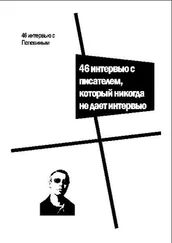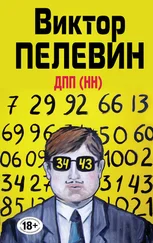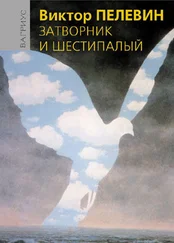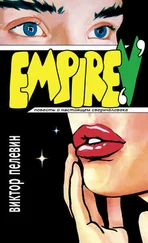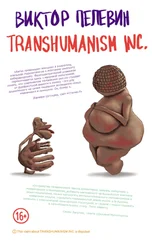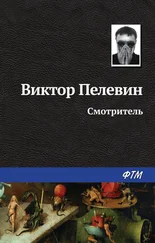Виктор Пелевин - Babylon
Здесь есть возможность читать онлайн «Виктор Пелевин - Babylon» весь текст электронной книги совершенно бесплатно (целиком полную версию без сокращений). В некоторых случаях можно слушать аудио, скачать через торрент в формате fb2 и присутствует краткое содержание. Жанр: Современная проза, на английском языке. Описание произведения, (предисловие) а так же отзывы посетителей доступны на портале библиотеки ЛибКат.
- Название:Babylon
- Автор:
- Жанр:
- Год:неизвестен
- ISBN:нет данных
- Рейтинг книги:5 / 5. Голосов: 1
-
Избранное:Добавить в избранное
- Отзывы:
-
Ваша оценка:
- 100
- 1
- 2
- 3
- 4
- 5
Babylon: краткое содержание, описание и аннотация
Предлагаем к чтению аннотацию, описание, краткое содержание или предисловие (зависит от того, что написал сам автор книги «Babylon»). Если вы не нашли необходимую информацию о книге — напишите в комментариях, мы постараемся отыскать её.
Babylon — читать онлайн бесплатно полную книгу (весь текст) целиком
Ниже представлен текст книги, разбитый по страницам. Система сохранения места последней прочитанной страницы, позволяет с удобством читать онлайн бесплатно книгу «Babylon», без необходимости каждый раз заново искать на чём Вы остановились. Поставьте закладку, и сможете в любой момент перейти на страницу, на которой закончили чтение.
Интервал:
Закладка:
According to tradition the path to the goddess and to supreme wisdom (the Babylonians did not differentiate these two concepts, which were seen as flowing naturally into one another and regarded as different aspects of the same reality) was via sexual union with a golden idol of the goddess, which was located in the upper chamber of the ziggurat. It was believed that at certain times the spirit of Ishtar descended into this idol.
In order to be granted access to the idol it was necessary to guess the Three Riddles of Ishtar. These riddles have not come down to us. Let us note the controversial opinion of Claude Greco (see 11, 12), who assumes that what is meant is a set of rhymed incantations in ancient Accadian discovered during the excavation of Nineveh, which are rendered highly polysemantic by means of their homonymic structure.
A far more convincing interpretation, however, is based on several sources taken together: the Three Riddles of Ishtar were three symbolic objects that were handed to a Babylonian who wished to become a Chaldean. He had to interpret the significance of these items (the motif of a symbolic message). On the spiral ascent of the ziggurat there were three gateways, where the future Chaldean was handed each of the objects in turn. Anybody who got even one of the riddles wrong was pushed over the edge of the ziggurat to certain death by the soldiers of the guard. (There is some reason to derive the later cult of Kybela, based on ritual self-castration, from the cult of Ishtar: the significance of the self-castration was evidently as a substitute sacrifice.)
Even so, there were a great many candidates, since the answers that would open the path to the summit of the ziggurat and union with the goddess actually did exist. Once in every few decades someone was successful. The man who answered all three riddles correctly would ascend to the summit and meet the goddess, following which he became a consecrated Chaldean and her ritual earthly husband (possibly there were several such simultaneously).
According to one interpretation, the answers to the Three Riddies of Ishtar also existed in written form. In certain special places in Babylon tablets were sold imprinted with the answers to the goddess’s questions (another interpretation holds that what was meant was a magical seal on which the answers were carved). Producing these tablets and trading in them was the business of the priests of the central temple of Enkidu, the patron deity of the Lottery. It was believed that the goddess selected her next husband through the agency of Enkidu. This provides a resolution to the conflict, well known to the ancient Babylonians, between divine predetermination and free will. Therefore most of those who decided to ascend the ziggurat bought clay tablets bearing answers; it was believed the tablets could not be unsealed until after the ascent had begun.
This practice was known as the Great Lottery (the accepted term, for which we are indebted to numerous men of letters inspired by this legend, but a more precise rendering would be ‘The Game without a Name’). Its only possible outcomes were success and death. Certain bold spirits actually decided to ascend the ziggurat without any tablet to prompt them.
Yet another interpretation has it that the three questions of Ishtar were not riddles, but rather symbolic reference points indicative of specific life-situations. The Babylonian had to pass through them and present proofs of his wisdom to the guard on the ziggurat in order to make it possible for him to meet the goddess. (In this case the ascent of the ziggurat described above is regarded rather as a metaphor.) There was a belief that the answers to the three questions of Ishtar were concealed in the words of the market songs that were sung every day in the bazaar at Babylon, but no information about these songs or this custom has survived.
Tatarsky wiped the dust off the folder and hid it away again in the closet, thinking that some time he would definitely read it all the way through.
He never did find his diploma dissertation on the history of Russian parliamentarianism in the closet; but by the time his search was over Tatarsky had realised quite clearly that the entire history of parliamentarianism in Russia amounted to one simple fact - the only thing the word was good for was advertising Parliament cigarettes, and even there you actually could get by quite well without any parliamentarianism at all.
CHAPTER 4. The Three Riddles of Ishtar
The following day Tatarsky, still absorbed in his thoughts about the cigarette concept, ran into his old classmate Andrei Gireiev at the beginning of Tverskaya Street. Tatarsky hadn’t had any news of him for several years, and he was astounded at the style of the clothes he was wearing - a light-blue cassock with a Nepalese waistcoat covered in embroidery worn over the top of it. In his hands he had something that looked like a large coffee-mill, covered all over with Tibetan symbols and decorated with coloured ribbons. He was turning its handle. Despite the extreme exoticism of every element of his get-up, in combination they appeared so natural that they somehow neutralised each other. None of the passers-by paid any attention to Gireiev. Just like a fire hydrant or an advertisement for Pepsi-Cola, he failed to register in their field of perception because he conveyed absolutely no new visual information.
Tatarsky first recognised Gireiev’s face and only afterwards began to pay attention to the rich details of his appearance. Looking attentively into Gireiev’s eyes, he realised he was not quite himself, although he didn’t seem to be drunk. In fact he was calm and in control, and he inspired confidence.
He said he was living just outside Moscow in the village of Rastorguevo and invited Tatarsky to visit him. Tatarsky agreed, and they went down into the metro, then changed to the suburban train. They travelled in silence; Tatarsky occasionally turned away from the view through the window to look at Gireiev. In his crazy gear he seemed like the final fragment of some lost universe - not the Soviet universe, because that didn’t contain any wandering Tibetan astrologers, but some other world that had existed in parallel with the Soviet one, even in contradiction of it, and had perished together with it. Tatarsky felt regret at its passing, because a great deal of what he had liked and been moved by had come from that parallel universe, which everyone had been certain could never come to any harm; but it had been overtaken by the same fate as the Soviet eternity, and just as imperceptibly. Gireiev lived in a crooked black house with the garden in front of it run wild, all overgrown with umbrellas of giant dill half as tall again as a man. In terms of amenities his house was somewhere between village and town: looking down through the hole in the hut of the outside lavatory he could see wet and slimy sewage pipes that ran across the top of the cesspit, but where they ran from or to wasn’t clear. On the other hand, the house had a gas cooker and a telephone.
Gireiev seated Tatarsky at the table on the verandah and tipped a coarsely ground powder into the teapot from a red tin box with something Estonian written on it in white letters.
‘What’s that?’ Tatarsky asked.
‘Fly-agarics,’ answered Gireiev, and began pouring boiling water into the teapot. The smell of mushroom soup wafted round the room.
‘What, are you going to drink that?’
‘Don’t worry,’ said Gireiev, ‘there aren’t any brown ones.’
He said it as though it was the answer to every conceivable objection, and Tatarsky couldn’t think of anything to say in reply. He hesitated for a moment, until he recalled that only yesterday he’d been reading about fly-agarics, and he overcame his misgivings. The mushroom tea actually tasted quite pleasant.
Читать дальшеИнтервал:
Закладка:
Похожие книги на «Babylon»
Представляем Вашему вниманию похожие книги на «Babylon» списком для выбора. Мы отобрали схожую по названию и смыслу литературу в надежде предоставить читателям больше вариантов отыскать новые, интересные, ещё непрочитанные произведения.
Обсуждение, отзывы о книге «Babylon» и просто собственные мнения читателей. Оставьте ваши комментарии, напишите, что Вы думаете о произведении, его смысле или главных героях. Укажите что конкретно понравилось, а что нет, и почему Вы так считаете.

